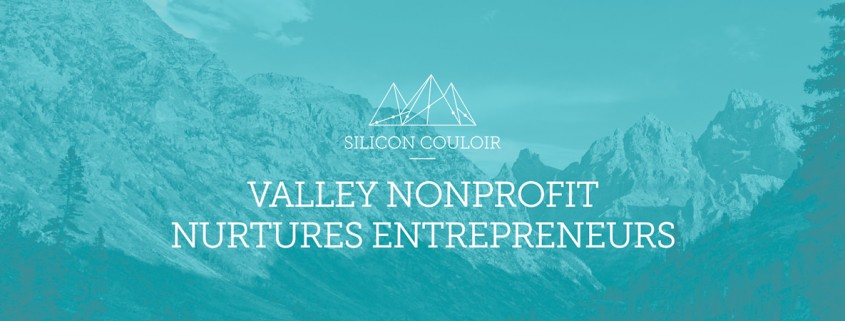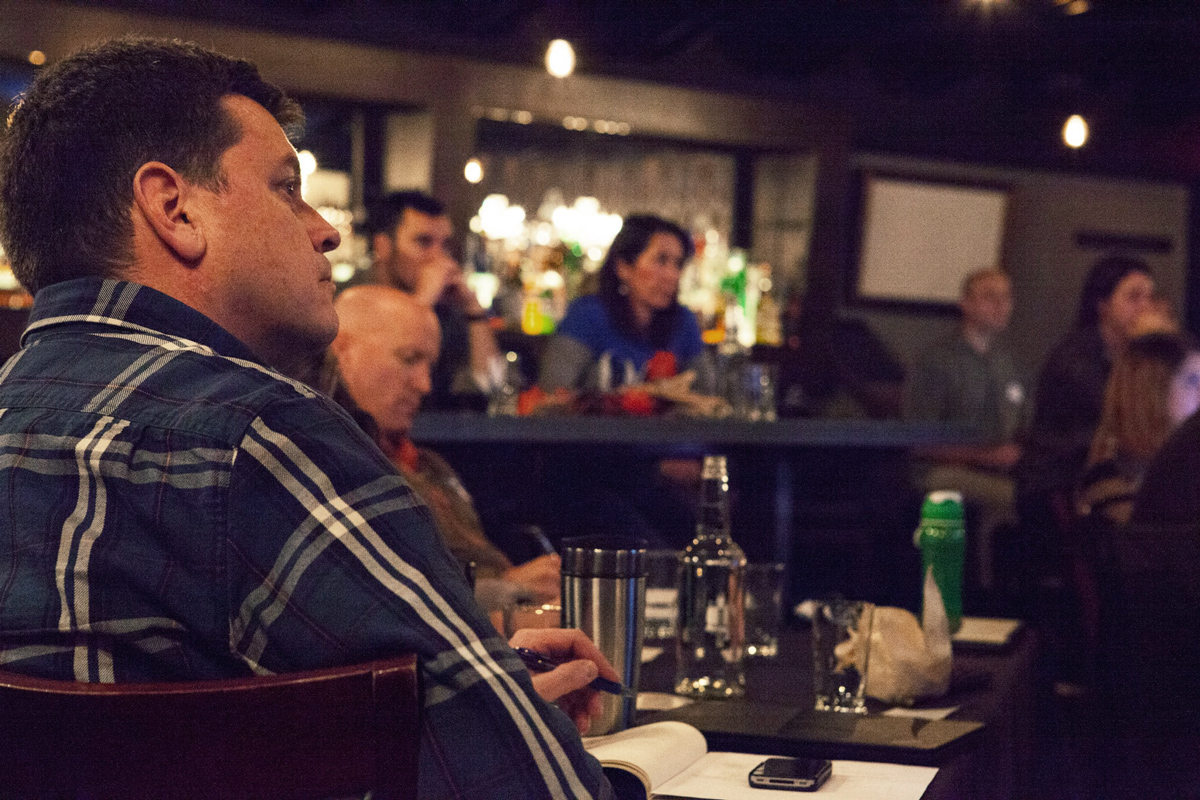Valley Nonprofit Nurtures Entrepreneurs
In French, “couloir” means a passage or corridor, from which English extrapolated a way to describe the dramatic terrain – a steep mountainside gorge – a feature so often found in the Rocky Mountain West.
The Teton business community has taken the term one step further by using it to describe the steep, but rewarding, climb entrepreneurs face when building a business hemmed-in by mountains. In just three years, Silicon Couloir, an incubator group dedicated to fostering entrepreneurship in the Tetons, has worked with more than 140 companies and nurtured 42 graduates from its 10-week business boot-camp, the Start-Up Institute. Last year alone, more than $1.2 million was raised as a result of Silicon Couloir introductions.
True to its name, Silicon Couloir approaches Teton entrepreneurialism as an ecosystem rich with capital and talent. Now more than ever, business pioneers are able to translate the technology opportunities afforded by the emerging economy and base their high-growth business at high altitudes. And Wyoming is particularly open to such entrepreneurial activity considering Governor Mead’s commitment to make technology the fourth largest industry in the state. To do its part, Silicon Couloir hosts monthly networking events (dubbed Chance Meetings) and angel introductions, an annual Pitch Day and this spring, Jackson’s first Leadercast event, a national initiative to nurture leadership development.
To examine this exciting moment in valley history, we turned to Charlotte Moats, Executive Director of Silicon Couloir. A former professional freeskier and Junior Olympian racer, Charlotte left the valley to earn her MBA from the Wharton Business School before joining McKinsey & Company. She returned last fall to helm the nonprofit incubator.
What niche did Silicon Couloir fill at its formation? How did it grow from an organic gathering of entrepreneurs into a volunteer organization and now, a full-fledged sustainable nonprofit?
Silicon Couloir was born out of the Charture Institute’s 22 in 21 conference, which asked what we wanted Teton County to look like in ten years. A group of people got together and discussed the housing crisis and the need for good, year-round jobs that didn’t increase the demand for a large seasonal workforce. Technology enables many great minds to work from Jackson, and the thought for the first Chance Meetings was to get these people out from behind their laptops in their kitchens and into one room to put their minds together. The first event lured almost 80 people out of the woodwork, and our founders knew they had identified a need. From there, our programs and our organization have grown and become more structured. We are constantly seeking to better serve this part of the community.
What sets Silicon Couloir apart from other incubator initiatives around the country?
I think what makes Silicon Couloir unique is that we’re organized as a non-profit, and our services are open and free to all of our community members. A traditional incubator has a strict application process, and then typically takes an equity stake in the companies that it admits. We try to be inclusive of entrepreneurs at all stages – whether you just have an idea on a napkin, or already have millions in revenues. In a sense, we are sort of by the community, for the community, rather than an offshoot of a venture capital company. We help connect companies with potential investors and coach them on their pitches, but Silicon Couloir does not provide direct investment (at least not yet).
What drew you to the role of ED? How does your background – in freeskiing, business school and consulting – inform your leadership of and vision for Silicon Couloir?
I see such incredible talent in this valley across the sometimes stereotypical sectors – the ski bums, the retirees, the business owners, the ranchers, the Latino community, etc. These sectors are often somewhat silo-ed in many ski towns, but we strive to be an umbrella that links them all together. We are one of the most over-educated and wealthy counties in the country. Moreover, it takes a certain degree of “grit” to live in Jackson. It’s cold, it’s wild, and it tends to draw people with a naturally pioneering spirit. At Wharton and at McKinsey, one of the primary characteristics we tried to screen for in applicants was “grit.” We tried to find people who have a sixth gear of sorts, and experimented with all types of personality tests to incorporate into the admissions process. Jackson, on the other hand, is full of these people, and when you can knit together an ecosystem that provides connection, education and support, the opportunities are endless. It’s quite exciting to see how connection can spawn innovation. The result is also a more engaged and balanced community – our mentors feel excited to be able to have significant impact in their own backyard, and our entrepreneurs learn from some of the most experienced business people in the country. Of course, as an organization, we are also a start-up, so we are also learning and evolving as we grow.
How can people new to the valley – or just visiting – engage with Silicon Couloir?
The easiest way to learn about our events and get monthly updates on the local start up scene is by signing up for our newsletter at www.SiliconCouloir.com. We also encourage people to join our MeetUp Group, and follow our Facebook and Linked In groups. Our monthly Chance Meetings are open to anyone, free, and take place at The Rose downtown from 5 – 7pm on the first Monday of each month (except major holidays, when it sometimes gets bumped to the second Monday).
In addition to start ups, we are always looking to engage speakers, mentors, investors, volunteers, and skilled talent.




